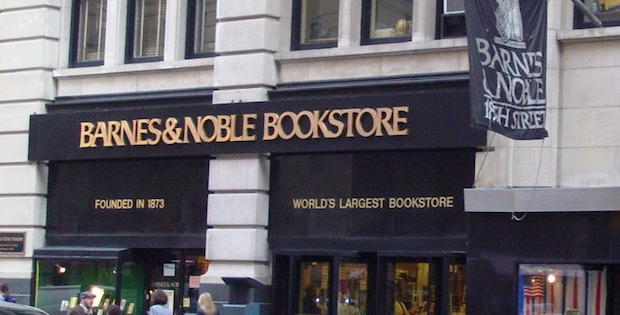Move over, Apple: Could Barnes & Noble bring Microsoft to college?

Microsoft invests $300 million into a joint venture with Barnes & Noble, and all it takes away is a Nook application and possibly a new major distribution channel among a highly sought-after demographic.
College students.

Let's face it. College kids want Macs, not Windows-running PCs. There is nothing luxurious or ego-building about owning a PC. It wasn't so long ago I was there; I know the score. PC's are for productivity, and college is mostly about drinking, partying, and climbing the social ladder.
You'll never see a loveable geek fawning over their Windows PC in class --- unless you're Zooey Deschanel --- and even then she's clearly a Mac considering how much she loves using Siri.
Microsoft therefore has a problem. 'How do we get more students using our software and hardware?' Microsoft could to bring the company to the students.
Microsoft Stores are few and far between. Microsoft needs to hit one target for a good source of income: colleges. Many colleges already have Barnes & Noble stores and host within dedicated Tech Stores that offer Nook products and other gadgetry.
Microsoft has 20 U.S. retail store outlets, while Barnes & Noble has over 630 stores at U.S. colleges and universities alone. Microsoft could cheaply infiltrate existing Barnes & Noble stores to offer Windows 8 powered technology directly to the market it seeks to target. With discounts offered upon receipt of college IDs, it increases the chance that students are more likely to head across the quad to the campus store than venture across town for a Mac.
Never underestimate how fickle the mere mortal student can be. Wave shiny things at them at a discounted price tag and they can be easily convinced.
The $300 million investment also means Windows 8 will host its own dedicated e-bookstore to rival Apple and Amazon. One Twitter commenter said: "The idea of spending $250-800 on a Windows 8 tablet that can get discounted e-textbooks sounds amazing as a student."
If Microsoft wanted to run with this, discounted Windows PCs could open the floodgates to a vast online e-bookstore that could offer cheaper e-books than its rivals. It would guarantee Barnes & Noble a stable revenue stream and a good market share, while batting at Apple and Amazon in the academic space. In return, Microsoft could at most ask for a reasonable and fair cut of the profits. Everybody would win.
But it's not just about academia and college. It's about the entire student experience. Windows has lost its branding edge with the younger generation, and its not limited to the Windows operating system.
iPhones dominate the student market. Android has the enterprise and consumer market sewn up, but students still vie for iPhones and BlackBerrys, despite RIM's ailing brand. Microsoft has 3.9 percent of the U.S. mobile market share market, according to recent comScore figures, and it continues to fall month by month.
It's time for Microsoft to get the whole ecosystem package going: Windows PCs with Windows 8, and Windows Phones and Xbox 360's. Who needs Pages, Keynote and Numbers when you have Office 2010 resting in your Start menu?
Microsoft declined to comment, but it would not be unexpected to see a rapid college campus expansion in the coming few years.
Image credit: Wikimedia Commons, CC.
Related: